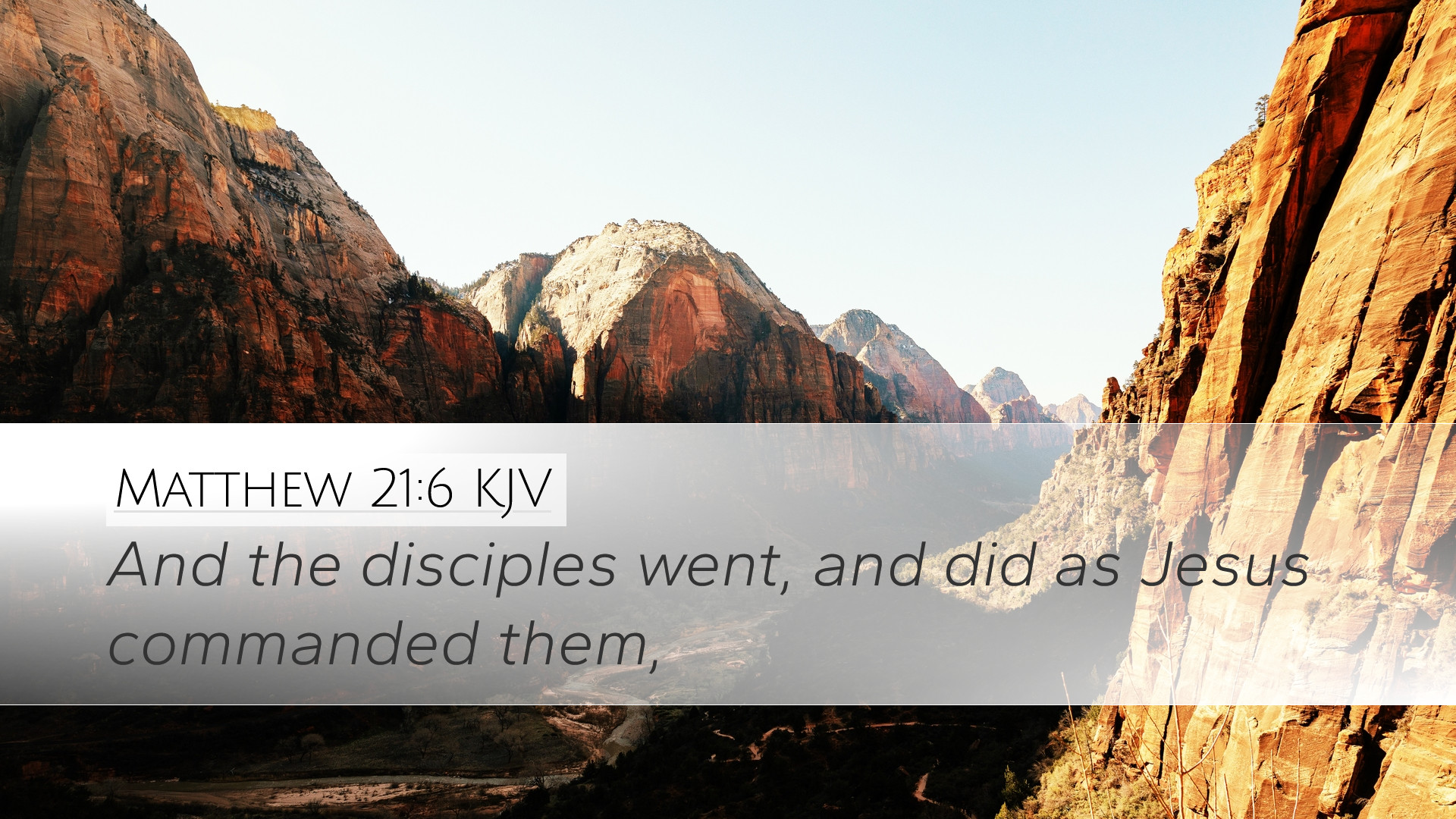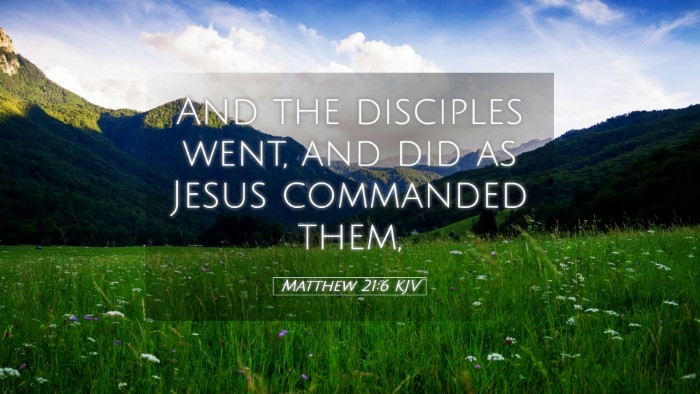Commentary on Matthew 21:6
Matthew 21:6 states, "The disciples went and did as Jesus commanded them." This verse is pivotal in the context of Jesus’ entry into Jerusalem and encapsulates themes of obedience, fulfillment of prophecy, and the authority of Christ.
1. Contextual Overview
Before diving into commentary, it is essential to understand the narrative surrounding this verse. Jesus’ triumphant entry into Jerusalem marks a significant moment in His earthly ministry, reflecting the culmination of His mission as the Messiah.
2. Historical and Theological Significance
- Fulfillment of Prophecy: This event fulfills Zechariah 9:9, where it is prophesied that the King of Israel would come to Jerusalem humble and riding on a donkey. This aligns with Matthew's frequent emphasis on the fulfillment of Old Testament prophecies.
- Disciples’ Response: The swift obedience of the disciples as noted in this passage demonstrates their faith and willingness to follow Jesus' commands, setting an example for all believers.
3. Insights from Matthew Henry
In his observations, Matthew Henry emphasizes the obedience of the disciples as indicative of their growing faith and recognition of Jesus' authority. He remarks that:
- The disciples acted promptly, showcasing the importance of immediate obedience to Christ's commands.
- The act of fetching the donkey and colt is seen as a symbolic preparation for the arrival of the King, thus highlighting that every significant event in Jesus’ life was foreordained.
4. Insights from Adam Clarke
Adam Clarke provides further depth to the understanding of this verse by exploring the cultural and historical background. His analysis includes:
- The significance of the donkey in Jewish tradition, symbolizing peace, contrasting with a horse, which would signify war. This reveals Jesus' intention to present Himself as the peaceful King.
- Clarke notes the disciples' trust in Jesus—despite possible fear or doubt about the act they were commanded to perform—demonstrating a model of faith for the church.
5. Insights from Albert Barnes
Albert Barnes adds to the discussion by exploring the nature of discipleship as exemplified in this verse. He points out:
- The readiness of the disciples to fulfill Christ's commands reflects not only their faith but also their role in the unfolding plan of God.
- Barnes emphasizes the importance of the preparatory work by the disciples, which serves as a reminder that God often requires us to take action in obedience as part of His higher plan.
6. Application for Today
The verse serves as a challenge for modern believers to consider the nature of their obedience to Christ. The disciples’ quick response raises questions about:
- Our Own Readiness: Are we ready to act as instructed by Christ, even when we may not fully understand His plan?
- Recognizing Authority: How do we recognize and respond to the authority of Christ in our lives today?
- Faith in Action: What steps can we take to actively demonstrate our faith through obedience, following the example of the disciples?
7. Conclusion
Matthew 21:6 invites us to reflect on the nature of our obedience to Christ. The act of the disciples to fulfill Jesus’ command highlights a crucial element of discipleship and serves as a powerful encouragement for all Christians to act in faith and obedience to the call of God. These insights from respected commentaries encourage us to seek a deeper understanding of our role in God's unfolding plan, just as the disciples did.


